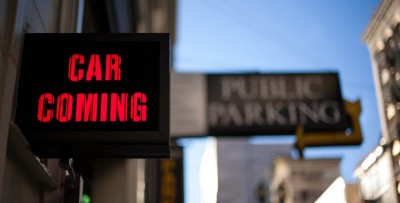I hadn’t known about Parking Monkey app until I heard about it on another excellent Russ Roberts’ Econtalk episode with Mike Munger (seriously, listen to it, it will make you laugh and be more optimistic about the future). For others who are not familiar, it is an app which allows users to auction off parking space they occupy at the moment. It has caused an uproar in San Francisco (and perhaps other places) because apparently drivers who would be otherwise elsewhere occupy public parking space with the only intend to make money on vacating it, which has allegedly worsened the parking situation in the city.
This is a prime example of tragedy of commons. Tragedy of commons is a phenomenon which occurs when property is public and fee for using it is below market price. There is no one with vested interest to maintain sustainable supply of the resources it provides, which typically leads to race for depleting all its resources before anyone else does it. One example are forests owned by states which are disappearing compared to privately owned lands whose owners make sure to maintain sustainable supply of wood or preserve primary habitat as purely charitable cause. Phillip Bagus explained how tragedy of commons apply in Eurozone where all countries race each other in depleting central bank’s resources before others drive their value down.
In case of San Francisco parking spaces, the city obviously rents out these spaces way below market price (or even free), which makes it financially interesting for (probably unemployed or underemployed) drivers to occupy them and sell them off for market rates. The auction system effectively determines market parking rate by combination of low rent rates with high “vacancy” rates. The one-off price which driver is willing to pay for the spot is then determined by 1) time he intends to spend there (the longer, the lower the price per time unit), 2) his parking anxiety (premium for Mr. Roberts there) and 3) marginal utility of the money required to outbid his opponent (i.e. proportion of that amount to his disposable wealth).
2) and 3) are out of city’s scope, but 1) is what needs to be addressed. This whole model makes sense only because there is a difference between what drivers are willing to pay and what city is charging. There is limited supply, but higher demand. On a free market, this gets sorted out by increasing supply (which governments are notoriously bad at unless it’s supply of money) and if the resource is – albeit temporarily – scarce, by increasing price and thus limiting demand. Since city holds monopoly on these spaces, there is no free market and result is the distortion its citizens can observe.
The only solution then is to introduce free market by privatizing public spaces. Private owners would then have vested interest in capital investments to increase their capacity to satisfy market demand. The system would be more transparent and tensions removed.
I’m afraid that might sound too logical for politicians though.




